“Priority Will Go To Areas Where Work Can Be Done With Minimium Risk”
- Par Eulalia AMABO
- 07 Apr 2020 10:30
- 0 Likes
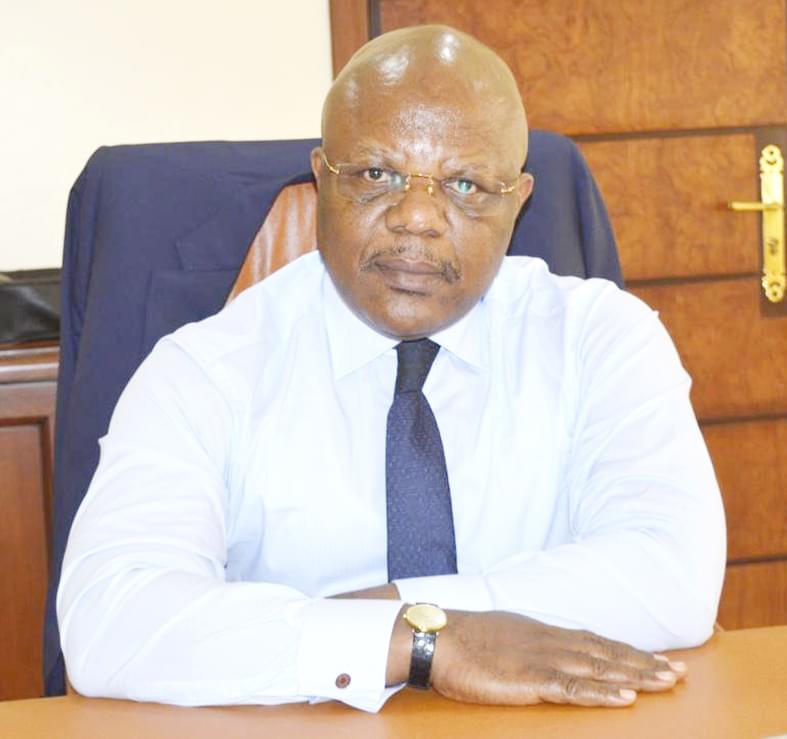
Paul Tasong, National Coordinator of the Presidential Plan for the Reconstruction and Develoment of the North West and South West Regions.
On Friday 3 April 2020, you were appointed by the Prime Minister Head of Government as National Coordinator of the Presidential Plan for the Reconstruction and Development of the NW&SW Regions. How did you receive the news?
I truly felt humbled but at the same time blessed with the honor confided on my person with this additional challenge. I am upbeat on the task that lies ahead, despite its immensity. I am eager to say I was intrigued by the name of the plan. The Presidential Plan for the Reconstruction and Development of the North West and South West Regions – PPRD-NW/SW. When the Head of State tags the title of his High Office to the plan, the dimension changes and the responsibility becomes enormous. Consequently, the challenge in the way it comes, reinforces my commitment to continue to play my role in the implementation of the Greater Opportunities mandate of H.E President Paul BIYA, to who I remain forever grateful.
How much of the destruction do you know that you will set out to rebuild?
For close to four years, the NW & SW regions have been hit very hard by the effects of a socio-political crisis, leading to thousands of Internally Displaced Persons (IDPs) and refugees who now live in host communities or countries. The crisis has had major impacts on three core areas; (a) social cohesion, (b) infrastructure and the (c) local economy of the two regions. Violent incursions and attacks have broken the social fabric between communities, damaged if not destroyed basic infrastructures, and put local economic development on hold.
Social cohesion is the willingness of members of a society to cooperate with each other in order to survive and prosper. It is essential to ensure a wide variety of positive social outcomes such as health and economic prosperity. The separatist crisis has indeed severely undermined the capacity of the NW &SW communities to realize their goals as a unified and collaborative society. The most obvious damages have affected individual homes. Communities from the NW&SW have suffered arson, pillages and destruction of their own homes.
In terms of infrastructure; education, health, transport, energy and water supply systems have been either destroyed or left to rot. As concerns the local economy, the two regions have suffered from economic uncertainty. This constitutes a risk to growth and has discouraged both public and private investments. Although Cameroon continues to enjoy political stability, the growing crisis in the NW&SW has delayed the beneficial effects of policies to encourage diversification and growth. The NW&SW are endowed with rich natural resources and wide range of agricultural products such as coffee, cocoa, maize, and cassava, fish, livestock, potatoes, plantains, beans, vegetables, yams, bananas etc. The crisis has put these activities on hold. The SW for example was the biggest cocoa producing region in the country before the crisis and has been relegated to the second position with production dropping from 45.45% to 32% of the national output between 2017 and 2018.
In a nutshell, our knowledge and analysis of the crisis has let us classify its impact on the wellbeing of the people in the three categories above. We shall therefore set out to reverse the downturn of life in the two regions from these three angles.
Do you have statistics of what is destroyed?
Yes, we do. Its standard practice in project evaluation to quantify needs before venturing into implementation. Data was collected from the field under the coordination of Regional Governors. We are looking forward to rehabilitating some 350 schools, 115 health Centers, 40 bridges, 400 water points, 500 km of low tension powerlines, 600km of rural roads, 45 markets, 12.000 private houses etc. This is just a tip of the iceberg of easy to quantify infrastructure. About 25.000 hectares of farm lands need attention. Many grazers lost livestock. About 300.000 lost personal documents. We will have to reconfirm some of these figures, because the situation has changed slightly since the data was last updated.
Where will priority be placed?
Priority will be determined geographically and will go to areas where work can be done with minimum risk. We shall prepare comprehensive and holistic packages for each localities.
Will the reconstruction embrace both public and private edifices and how will it be done?
Déjà abonné ?
Identifiez-vous >
Cet article complet est réservé aux abonnés
Accédez en illimité à Cameroon Tribune Digital à partir de 26250 FCFA
Je M'abonne
1 minute suffit pour vous abonner à Cameroon Tribune Digital !






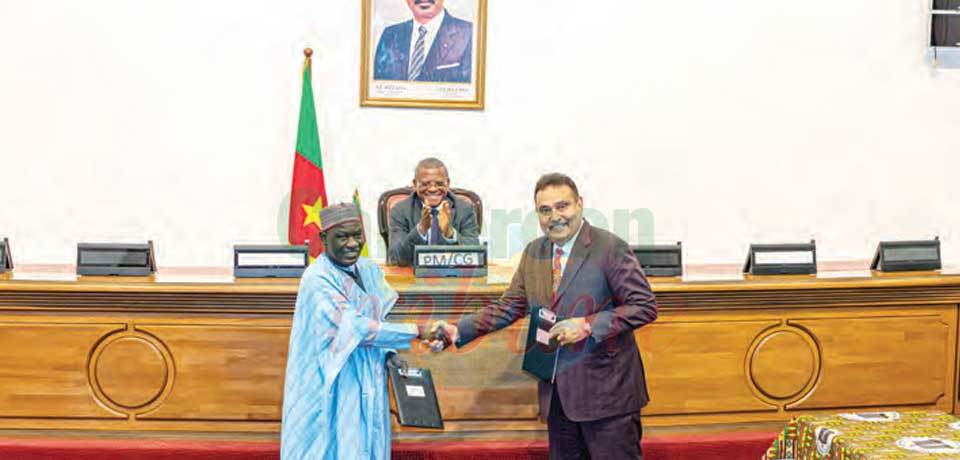
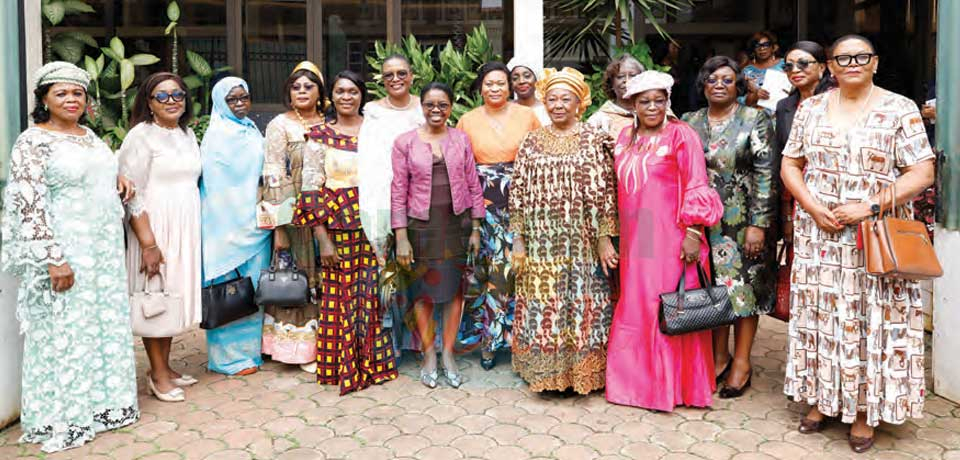
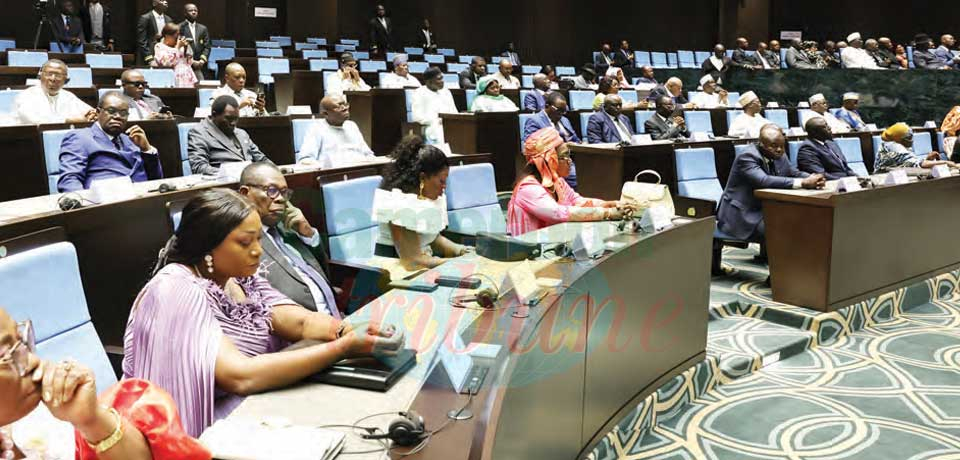
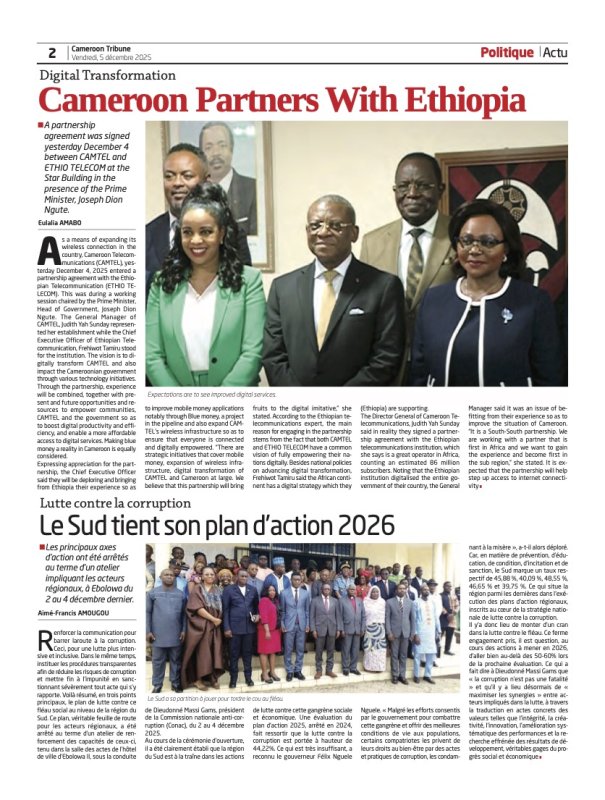




Commentaires